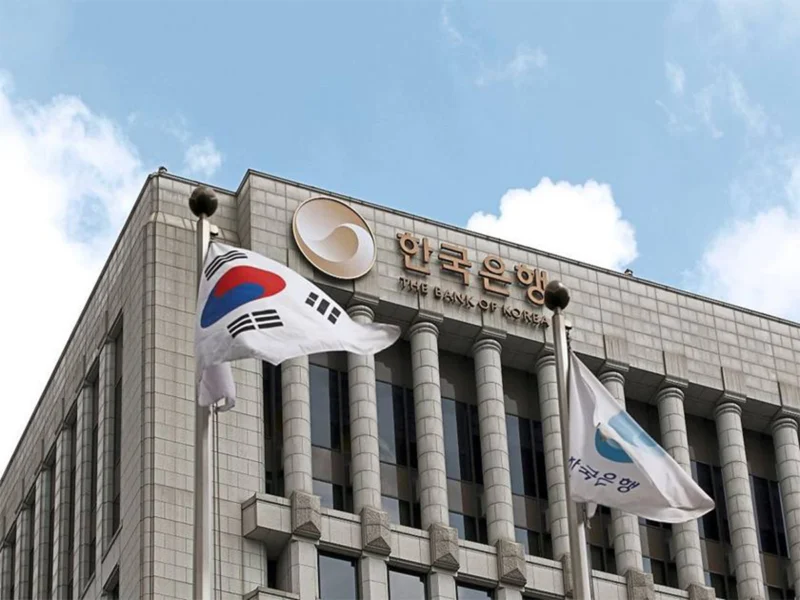Publisher: Maaal International Media Company
License: 465734
Report: Generative AI will inject $8 trillion into the global economy by 2024
A new research report from Accenture (listed on the New York Stock Exchange under the symbol ACN) indicated that the world is witnessing a massive technological transformation, in which artificial intelligence technology and other qualitative technologies are based on “human design”, that is, more human-like and easier for people to use, in addition to… Generative AI has the potential to impact 44% of all working hours across various sectors, and can improve productivity across 900 different types of jobs, adding between $6 to $8 trillion to the size of the global economy, which amounts to approximately $100 trillion. The research report also shows that human-centric technologies have growing capabilities, become easier to interact with and become more seamless across all aspects of our lives, leading us towards a world in which technology will become more widespread around us, and at the same time more hidden.
Accenture’s Technology Insights report, Humane Design: How AI Unlocks the Next Level of Human Potential, explores how technology, especially generative AI, is becoming more human in nature, after years of accelerated innovation. As technology evolves to become more human-centric, it drives greater capabilities for people, maximizes their potential and reinvents businesses.
Paul Doherty, chief technology and innovation officer at Accenture, said: “In parallel with artificial intelligence, spatial computing and physical sensor technologies are evolving to the point where the technology appears to mimic human capabilities and remains hidden, which will provide people with new capabilities that enable them to accomplish things that they once considered impossible.” . This significant paradigm shift in the way people work, live and learn will accelerate a wave of unprecedented change across sectors, from retail and entertainment to medicine and manufacturing. “And organizations that are currently working to reinvent their businesses and ways of working using “human design” techniques will redefine the meaning of leadership within the sector.”
اقرأ المزيد
The study identifies four main trends within the field of transition towards technologies based on “human design”: harmony created by artificial intelligence: reformulating our relationship with knowledge, and I present to you my agent: systems for artificial intelligence, and the space we need: generating value in light of a new reality, and the electronic transformation of our bodies: New human connections.
The first major trend in the transition to built technologies is the harmony created by artificial intelligence: reshaping our relationship with knowledge – ushering in a world in which data is reorganized in ways that facilitate human-like thinking that may even mimic creativity. Instead of digging through a massive pile of search engine results, people will get curated, personalized answers in the form of advice, a summary of a wide range of results, an article, an image, or even a piece of art. This turns research into a synthesis process, and business leaders who reimagine the organization’s information business and equip their employees with AI-powered enterprise knowledge tools will achieve dramatic gains in performance and competitive advantage.
The second major trend included, I Introduce You to My Agent: Artificial Intelligence Ecosystems – envisioning a world in which AI-enabled agents act on behalf of people and are part of an interconnected system. These automated agents help us, advise us, and take decisive action on our behalf in the physical and digital worlds. By coming together, it multiplies the collective output of workers and creates enormous value for the organizations that choose to participate. 100% of executives in Saudi Arabia (compared to 96% globally) agree that benefiting from artificial intelligence agent systems will represent a tremendous opportunity for their organizations during the next three years.
The third major trend, The Space We Need: Generating Value in a New Reality – building rich, immersive new worlds of personal interaction by extending our 2D physical worlds into new 3D environments created by spatial computing, the metaverse, digital twins, and AR/AR technologies. Default. These new places and experiences will merge our digital and physical worlds, bringing us together in new ways, fueling innovation and improving the way we work, learn and live. In the field of retail, 57% of Saudi consumers (compared to 33% globally) indicated their current or potential interest in using spatial computing technologies or devices for shopping.
The fourth major trend, the electronic transformation of our bodies: new human connections, comes using innovative and integrated technologies, such as wearable devices supported by artificial intelligence, brain-sensing neurotechnology, and eye and movement tracking, in order to open the horizons of a better understanding of us, our lives, and our intentions, and employing those deeper insights in enhancing the way Our work and our livelihood. 100% of executives in Saudi Arabia (compared to 94% globally) agree that human connections technologies will allow us to better understand behaviors and intentions, resulting in a shift in the interaction between humans and machines.
Daugherty added: “Human-centric technologies, such as generative AI, will unleash human potential and provide an incredible range of business and societal benefits. But this requires that we follow a balanced “humane design” approach that ensures that these technologies are used equitably and responsibly. In parallel with the rapid technological progress, 99% of executives in Saudi Arabia (compared to 93% globally) agree on the importance of purposeful innovation by organizations more than ever before.”
Accenture’s 24-year-old Technology Vision Report takes a systematic look at the business landscape to identify the technology trends that have the greatest potential to generate innovation for companies and various sectors. Input for the 2024 report was gathered from an external advisory board of more than two dozen experts from academia, business and the public sector. The initial global research includes a survey of 3,450 executives from 21 industries and more than 20,000 consumers across 20 countries, conducted between October and November 2023.








